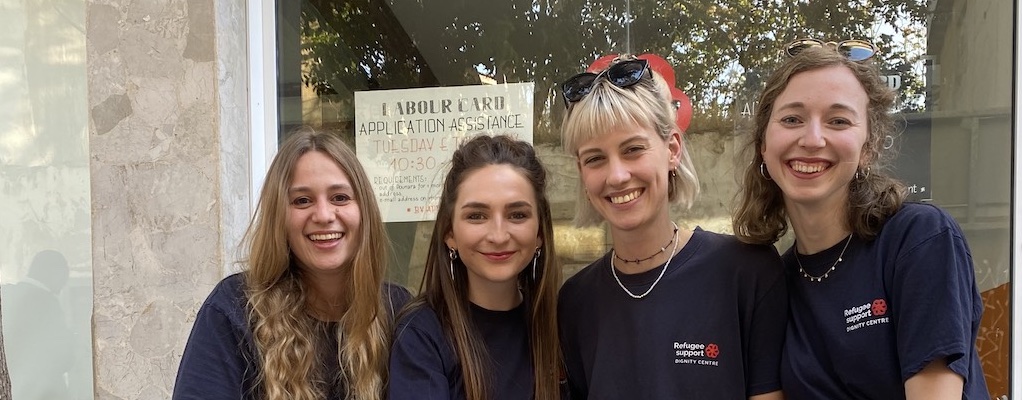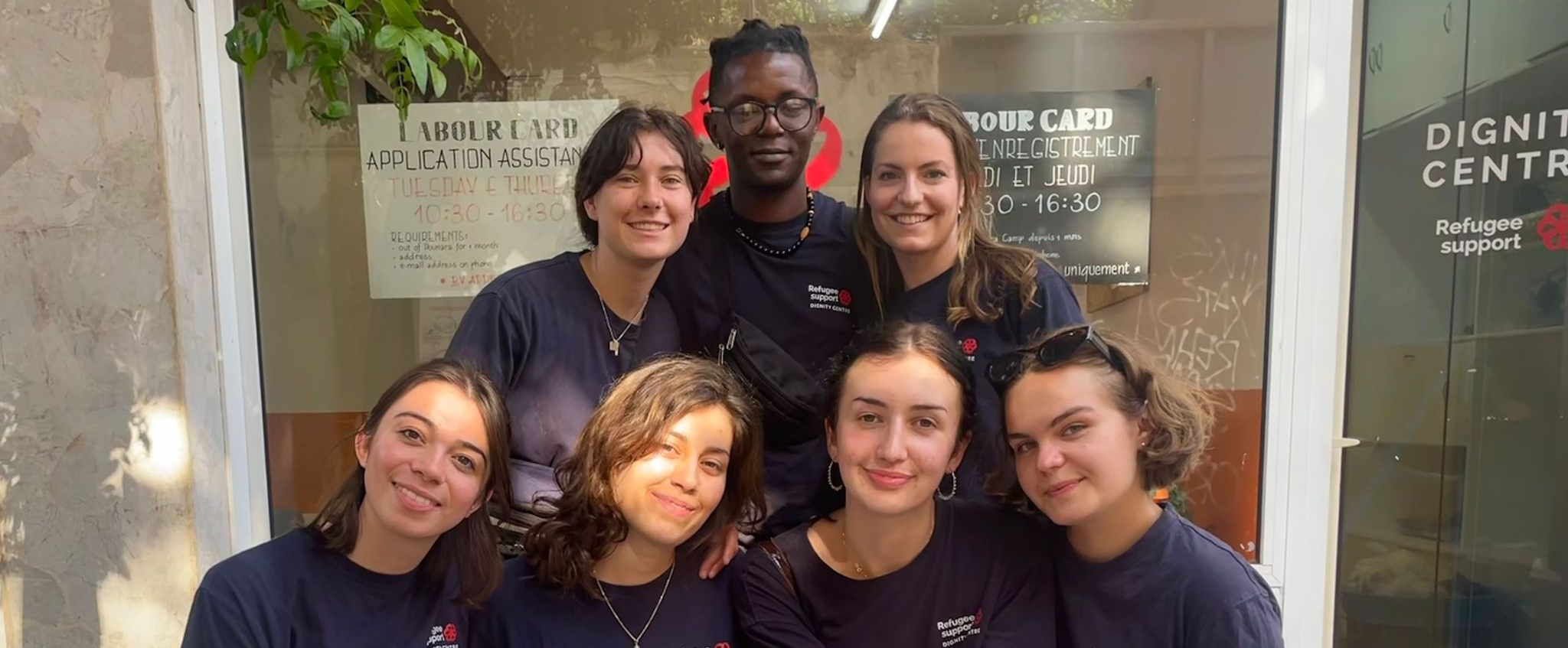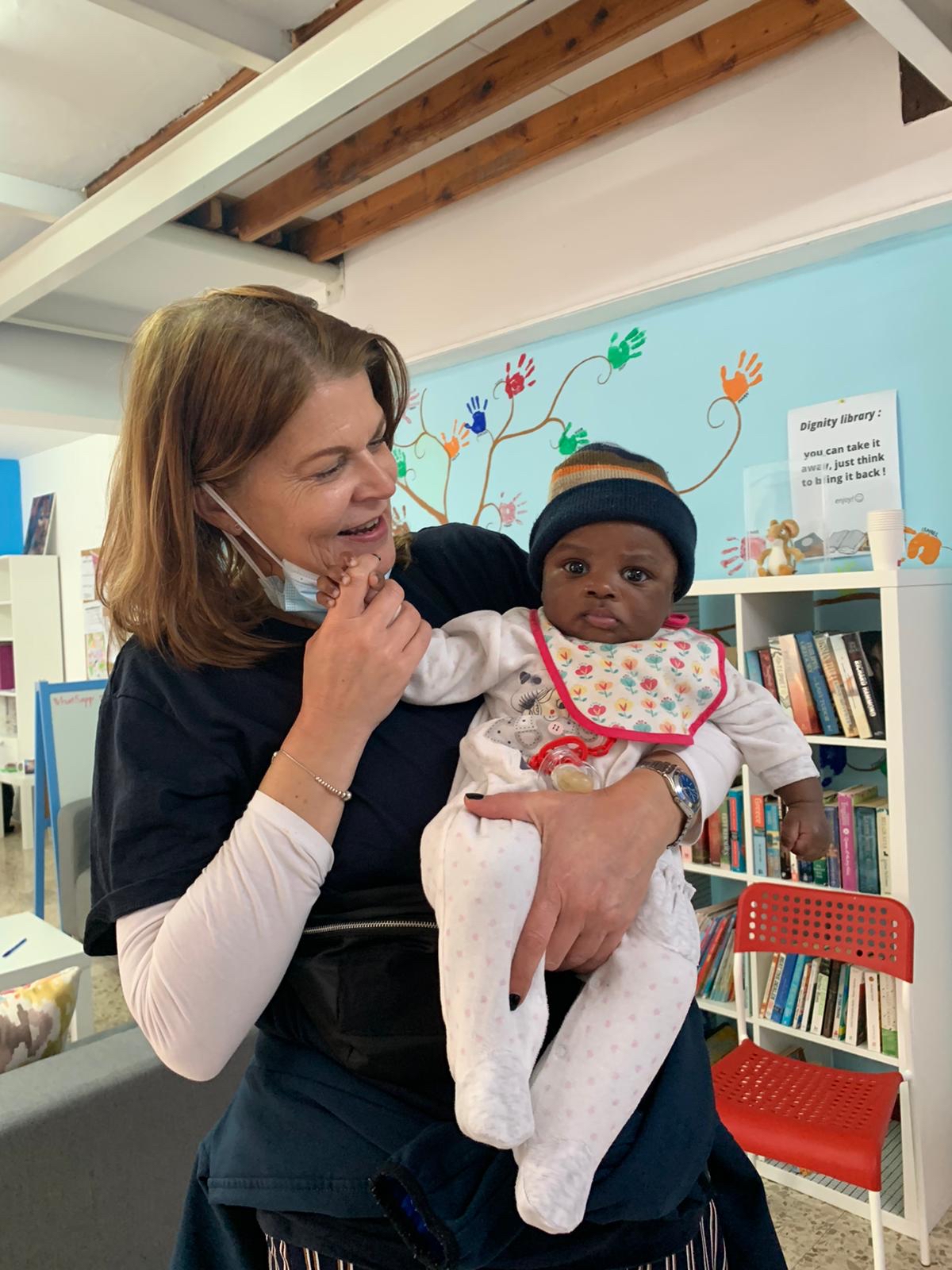When asked to write about my time volunteering at Alexandreia, it was difficult to know where to start; my entire time there was incredibly rewarding. But one thing does bother me when I look back on the month I spent on Greece – where were all the other male volunteers? About three quarters of the people I worked with were women, so I thought I’d write something to encourage more men to join.
So, why wouldn’t a man choose to volunteer in a refugee camp? I’m guessing the idea of working with vulnerable people and children is off-putting to some. I don’t class myself as a “people person”, and I was pretty daunted by the idea of running children’s activities or dealing with the frayed emotions of families whose lives have been turned upside down. On the train to the airport I had a real moment of fear and uncertainty – there was no way I’d be the right kind of person for this work.
But all that changed once I arrived.
To begin with, there is plenty to do that involves minimal contact with the camp. From driving vans around Greece to pick up donations, to lugging boxes around the warehouse and ferrying supplies to and from the camp, supporting the more touchy-feely work is a full-time job. It’s surprisingly interesting too, constantly having to use your initiative to keep everything running smoothly on a shoestring budget. While doing this work I also got to know the team, a really diverse and friendly bunch, from retired accountant to Californian hippie – if you have a big heart and want to help, don’t worry about fitting in!
I couldn’t avoid working at the camp forever though. I ended up spending most of my last 3 weeks running the free food shop, which gave a lot more direct contact with the refugees. Some can be difficult to deal with, which is understandable, but the majority of the time I was blown away by their dignity and good nature. Across the language barrier we’d share jokes about whether their children were too old to be eating baby food, or astonishment at the immense quantity of low grade kiwi fruit entering the camp.
Thanks to donations from various sources, during my time in the shop we were able to greatly increase the amount of food we provided. I worked hard with my fellow shopkeepers, Isobel and Jorge, to deliver this fairly and efficiently, improvising production lines and improving how we kept information about which families had received what. On the morning we were due to distribute the extra food we suddenly realised, “How are they going to carry all this home?”. We quickly put an Arabic sign up on the door of the shop:
“Bring two bags this week – you’re going to need them!”
I’ll never forget the excitement this caused, with mothers sending children back to their tents to fetch another bag. A couple of weeks later we also started giving families more choice over what food they could take, causing another wave of excitement at the prospect of getting such ‘luxuries’ as sardines or fruit juice. Knowing how they are forced to live – as many as 8 people crammed into tents and containers, and waiting in limbo to find out if they’re lucky enough to be relocated – it made it all the more rewarding to be able to contribute not just food, but a small semblance of normality into their lives.
I did say I’m not a “people person”, but I lied. I definitely wasn’t when I arrived, but volunteering in Alexandreia has been a truly life-changing experience. Every day you’re rewarded ten times over for the effort and compassion you put in to helping the refugees. When a little girl draws you a heart to thank you for helping her try on some shoes; or another little girl hugs your legs when you’re giving her family their fruit for the week, it breaks your heart a little. But you’ll never feel prouder, and you’ll be a bigger, softer, better man for it.



